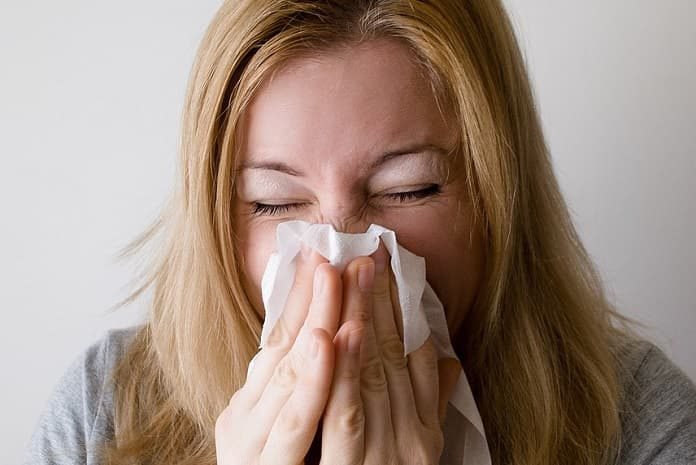In November 2017, the American College of Chest Physicians (CHEST) updated their recommendations and suggestions for managing acute coughs associated with the common cold.
On average, individuals will catch a cold at least once a year. As the common cold is usually caused by a virus, which cannot be treated using antibiotics, we must find other ways to manage the symptoms. Symptoms typically include a runny nose, sore throat, aches, and low-grade fever. The most persistent and perhaps most annoying symptom, however, is coughing.
Over-the-counter cough remedies are popular among consumers
The American College of Chest Physicians (CHEST) last updated their guidelines for managing symptoms associated with the common cold in 2006. Since then, consumer reports have demonstrated that more and more Americans are choosing to treat the symptoms of common colds with over-the-counter (OTC) cough and cold remedies. In 2015 alone, Americans spent over $9.56 billion on such remedies, the most popular treatments being cough syrups and throat lozenges.
Updating the 2006 guidelines
With the growing popularity of OTC remedies, CHEST reviewed all relevant studies on the common cold to identify whether advances had been made in the available treatments or if new treatments were available. They were particularly interested in finding evidence showing whether or not different treatment options could reduce the severity or duration of coughing associated with the common cold.
Due to a large number of treatments available, the team based their updated recommendations on the following categories: antihistamines and decongestants, acetylcysteine and carbocysteine, honey, zinc lozenges, nonsteroidal anti-inflammatory drugs (NSAIDs), and OTC cough and cold medicines. The recommendations were published in 2017 in CHEST.
Honey may provide more relief in children
Of all the treatment options, the team suggest that honey might provide more relief from coughing in children aged 1-18 years compared to the antihistamine diphenhydramine or no treatment at all. They also found that the OTC medicine dextromethorphan was better than honey; however, this medicine should not be given to infants under two years of age.
Treatment options that are not recommended
In contrast, the team do not recommend the use of decongestants, antihistamines, NSAIDs, or OTC cough and cold medicines in adults or children due to limitations in the evidence they reviewed.
Many OTC medicines contain active ingredients that can cause serious complications, and even death, if not used as directed. Therefore, the team emphasize that medicines containing codeine should not be given to children under 18 years of age. Similarly, the team do not recommend the use of zinc lozenges due to the potential of experiencing undesirable side effects.
Treatments with no specific recommendations
The team were unable to find enough evidence for or against the use of acetylcysteine or carbocysteine so made no suggestions about using these products for treating coughs associated with the common cold.
The direction of future studies and updates
The team are constantly monitoring the literature and found that several new products had been released on the market since the 2006 guidelines were published. However, these were often new combinations of existing products, not novel treatments. The team recommend that more high-quality trials are needed to confirm the effects of common cold treatments and suggest that future studies concentrate on developing medicines that are not only effective but safe for children and adults alike.
Written by Natasha Tetlow, PhD
Reference: Malesker MA, et al. Pharmacologic and nonpharmacologic treatment for acute cough associated with the common cold. Chest. 2017; 152:1021-1037.



